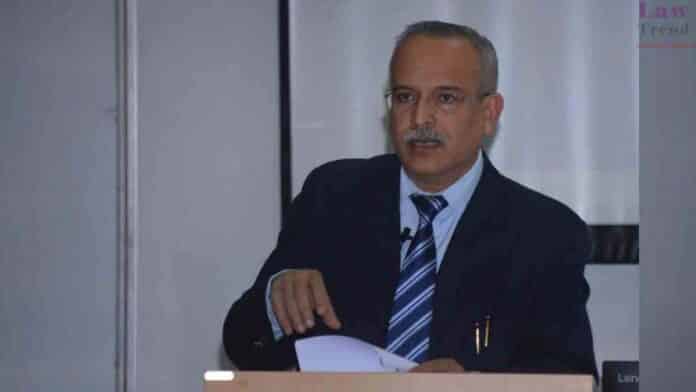Delhi High Court Chief Justice Satish Chandra Sharma on Tuesday said that technology is going to be an integral part in determining the future of justice as he inaugurated three IT projects, including web accessibility compliant cause list which would be accessible to specially-abled persons.
The chief justice said the Delhi High Court has entered into an advanced stage of using technology for improving the justice delivery system.
On the occasion of Independence Day, the chief justice inaugurated Secure, Scalable and Sugamya Website as a Service (S3WaaS) of the Delhi District Courts , Digital Platform for Sharing Trial Court Record with the High Court and Web Accessibility Compliant Cause List of the High Court.

The inauguration programme was held in the high court premises after the chief justice unfurled the national flag.
“The three projects are primarily aimed at streamlining the nuances of judicial process for litigants and lawyers interacting with the system.
“When I say judicial process, I am not limiting myself to the process of adjudication of cases,” Justice Sharma said.
He said decision making is only one aspect of the judicial process and a series of sub processes continue to ensure a smooth functioning of the court.
He said a constant endeavour must be made to make the judicial system accessible and transparent.
“Among other things, a digital platform for sharing trial court records was a long due. The good old practice of summoning records was not only considerably delaying the process but also putting a burden on the environment and the exchequer,” he said.
Web accessibility compliant cause list will enable specially-abled persons to have an easy access to the online cause list in the court website.
The chief justice said with this new digital platform, “we will be able to access the record in a secure, credible and expeditious manner”.
He said there is an acknowledgement of the fact that technology is going to be an integral part in determining the future of justice.
“We have come to understand that seemingly complex elements of a judicial process can be simplified through technology,” he said.
A statement issued by the high court said with the launch of its Web Accessibility Compliant Cause List, the high court has taken another big leap in accessibility initiatives.
It said the e-Committee of the Supreme Court has issued an SOP for generating documents that are accessible to the disabled.
Speaking on the occasion, Justice Rajiv Shakdher, who is also the chairperson of the Information Technology Committee of the high court, hoped the chief justice would give a green signal to the accessibility committee.
He said after taking feedback from the stakeholders and with assistance of visually impaired advocates Rahul Bajaj and Amar Jain, the cause list of the Delhi High Court is made web accessibility compliant.
Justice Shakdher also announced that on lines of the high court, accessibility committees will be also constituted in all the district courts here and the details of such committees will be published on websites of district courts and the high court.
Justice Sanjeev Sachdeva, who is also a member of the IT committee, said this could not have been possible without the shared contribution of judges, IT team members, registry officials, lawyers and other stakeholders.
“We all are part of this institution due to our shared passion for the vision of the institution. Our hard work strengthens the institution,” he said while delivering his welcome address.
Any advocate, litigant or public at large can raise grievances and seek assistance of these committees for various accessibility related needs, it was said.
It was also announced that directions have been issued to the Delhi Judicial Academy to conduct regular training programmes for lawyers and court staff for creating accessible documents and dealing with the needs of persons with disabilities with appropriate care and sensitivity.







